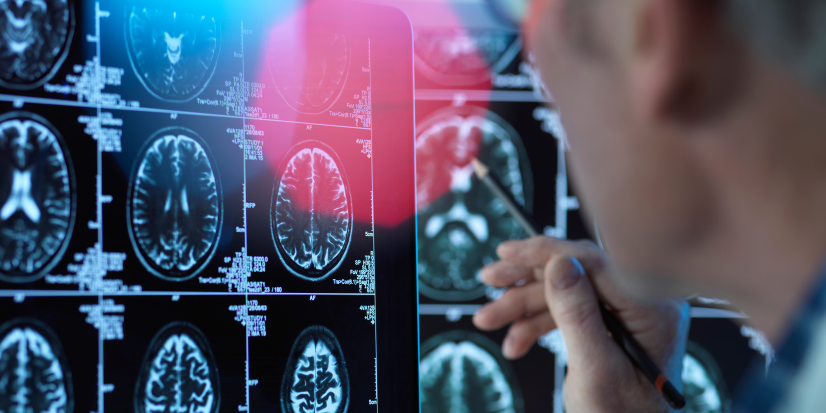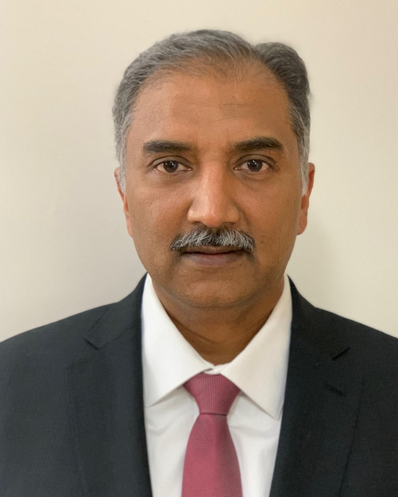OU College of Medicine Researchers Make Discovery Crucial to Treatment of Brain Cancer
- Category: News
- Posted On:

 The news is rarely good for people diagnosed with glioblastoma, an aggressive brain cancer that is difficult to treat and rarely is cured. However, the prognosis is even worse for a subset of patients whose cancer-fighting immune cells are suppressed after radiation therapy.
The news is rarely good for people diagnosed with glioblastoma, an aggressive brain cancer that is difficult to treat and rarely is cured. However, the prognosis is even worse for a subset of patients whose cancer-fighting immune cells are suppressed after radiation therapy.
But there is renewed hope in a study conducted in part by researchers in the University of Oklahoma College of Medicine at the OU Health Sciences Center, published today in the journal Science Translational Medicine. The publication details their discovery of why some patients’ immune cells are suppressed during treatment, as well as the potential of certain drugs to reverse such immune suppression.
The Beginning of the Research
OU Health Stephenson Cancer Center and OU College of Medicine cancer biologist Dinesh Thotala, Ph.D., MBA, and Subhajit Ghosh, a post-doctoral fellow in his laboratory, began the research at their previous institution, Washington University School of Medicine in St. Louis, Missouri, where they collaborated with Jiayi Huang, M.D., an associate professor of radiation oncology and co-clinical director of the Brain Tumor Center at Siteman Cancer Center. They knew that nearly half of patients undergoing radiation therapy for glioblastoma develop lymphopenia, a suppression of the white blood cells that fight cancer. But they didn’t know why.
“The three of us began working to see if we could find the mechanism behind this lymphopenia phenomenon,” said Thotala, who is an associate professor and Director of Cancer Biology in the OU College of Medicine Department of Radiation Oncology. “This suppression can last for six months to a year, and patients who develop lymphopenia are more likely to die sooner of a tumor recurrence.”
The team discovered that patients with lymphopenia have an increased level of myeloid-derived suppressor cells (MDSC) after radiation therapy, as compared to patients without lymphopenia. MDSCs — which can be called “bad” immune cells — suppress the body’s “good” cancer-fighting immune cells, thereby helping the tumor survive the effects of radiation therapy. The researchers made the discovery by analyzing blood samples from patients with glioblastoma and verified it with an animal model of the disease.
Next Steps
They took the research a step further by testing two different inhibitor drugs for their potential to prevent MDSCs from suppressing immune cells. The drugs, given during radiation therapy, were indeed successful, demonstrating they can prevent the development of lymphopenia and improve survival.
“This opens up a new horizon for treating glioblastoma better, at least for this subset of patients,” Huang said. “But we believe the drugs have to be given during radiation therapy because it’s the radiation that induces the production of MDSCs in some patients with glioblastoma, and that’s what is driving the lymphopenia and the resistance to treatment.”
The team’s discovery is distinct in cancer research because it represents a new way of understanding the relationship between the immune system and tumor resistance to treatment, Thotala said. Most studies focus on immune cell suppression within the tumor itself, not throughout the body, as Thotala and his colleagues are doing.
“What we have found is that MDSCs can suppress immune cells systemically — throughout the body — and not just in the tumor,” he said.
Work Left to Do
Much work remains in this area of research. The team tested only two of several possible drugs to inhibit MDSCs, but they are developing other clinical trials and working with pharmaceutical companies for further investigations. The process is complex and challenging because once MDSCs are inhibited, a person’s bone marrow can replenish them quickly.
Ghosh said the team’s recent findings also may be able to enhance cancer drugs other than chemotherapy and radiation, such as checkpoint inhibitors, commonly referred to as immunotherapy.
“While chemotherapy and radiation therapy work by attacking cancer cells directly, immunotherapy drugs work by stimulating the body’s own immune system to attack cancer cells, even after the treatment has ended,” Ghosh said. “However, immunotherapy has not worked well for glioblastoma and many other tumors, so it may be interesting to see if blocking MDSCs can make immunotherapy more effective.”
To read the study, go online to: https://www.science.org/doi/10.1126/scitranslmed.abn6758

.png)
